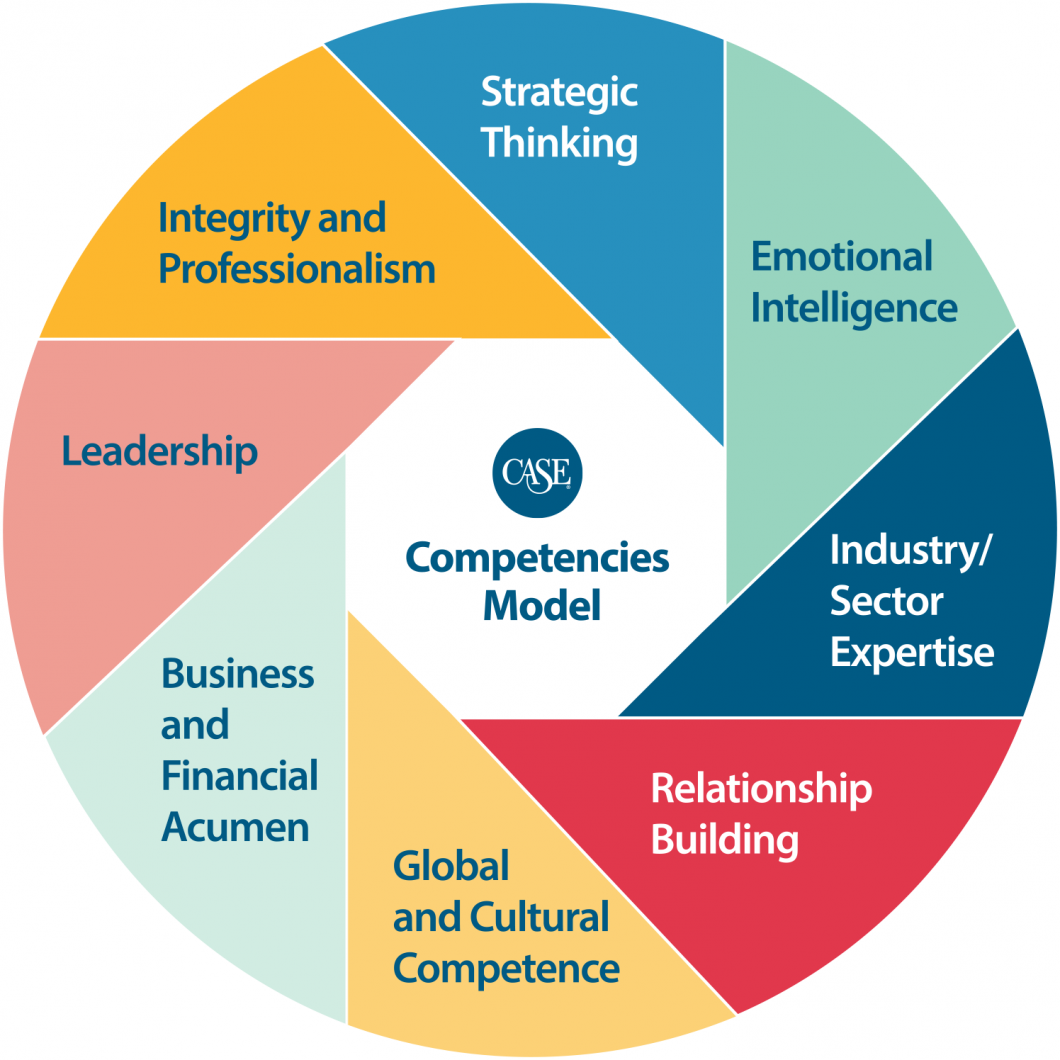
Focus on the Future: The CASE Competencies Model
Recognizing the need for a pedagogical framework for our professional development programming, CASE convened a Curriculum and Content Review Task Force to review our current offerings and design a path forward. The Task Force first concentrated on the development of core competencies for advancement professionals in all disciplines. They considered the needs of those new to the profession, those who may want to take the next step in their career, and those who are in the process of mastering all necessary skills.
The CASE Competencies Model is the first step in the development of this broader curricular framework.
Asking fundamental questions
Ambitious young professionals and seasoned managers alike have similar concerns:
- “What’s the next step in my career?”
- “How can I prove my worth?”
- “How can I demonstrate I’m ready for the next challenge?”
- “How do I choose which conference or course or webinar is best for me right now?”
- “Is chairing an institute an effective use of my volunteer time?”
Advancement leaders, managers, search firms, and HR departments raise parallel questions:
- “How do I know CASE is providing the right training for my team?”
- “How does participation in CASE workshops improve staff capability or performance?”
- “How do I design a professional development plan for up-and-comers at my institution?”
- “How can skills acquired in other areas translate into the advancement professions?”
Recognizing the importance and relevance of these questions, CASE assembled the Curriculum and Content Review Task Force to tackle key foundational issues.
- Training and equipping advancement professionals
- Developing a curriculum that is fundamentally sound and consistently delivered
- Integrating theory and practice while accommodating on-the-job learning
- Creating a sequential approach to learning key skills at every stage of an individual’s professional journey
Mapping paths to mastery

Job descriptions today cite required competencies for candidates. But what are those competencies in the advancement professions? To ensure that CASE educational programming provides a clear path to increased effectiveness, productivity, and professionalism, the Task Force identified eight “competency clusters.”
Each competency cluster is composed of hard and soft skills, detailing the knowledge, skills, and abilities that result in positive performance outcomes.
- Each cluster includes a set of performance indicators, such as “data-based decision making” or “managing complexity.”
- In each cluster are skills and abilities appropriate to an individual’s professional development level: emerging, maturing, and mastering.
Applied to CASE curricula, this model will provide a basis for talent management—from pipeline management to understanding professional development for managers and senior leaders. Instead of assessing performance solely upon an institution’s business goals or objectives, the CASE Competencies Model delineates the skills and abilities fundamental to professional progress.
CASE has identified a handful of current educational programs to assess how the Competencies Model works in practice. At the same time, the Task Force is also focusing on keeping the volunteer experience central to our educational work and exploring a “Train the Trainers” process.







